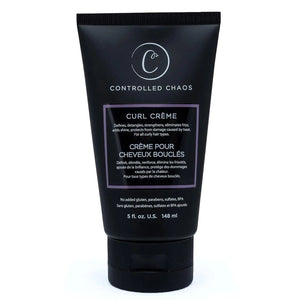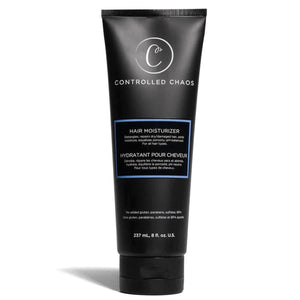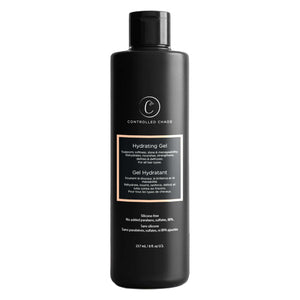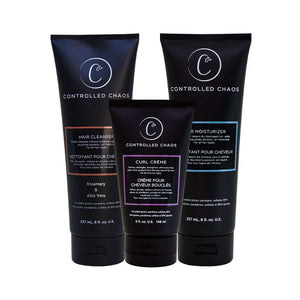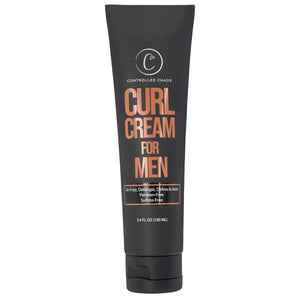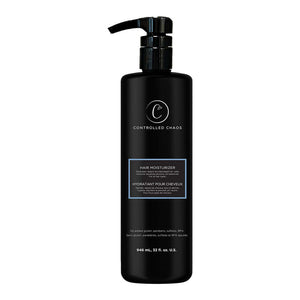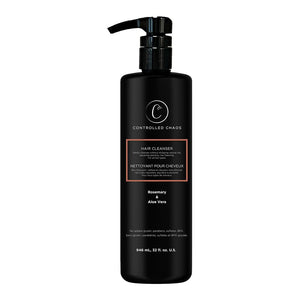

Hair shrinkage is a common phenomenon experienced by individuals with curly, coily, or kinky hair textures. It occurs when the natural curls contract, causing the hair to appear significantly shorter than its actual length. This shrinkage is primarily attributed to the hair's unique structure, specifically the presence of coiled proteins known as keratin.
When hair is exposed to moisture, humidity, or water, these curls tend to tighten and contract, resulting in reduced length.
However, various techniques and products can be employed to mitigate hair shrinkage and elongate the curls, allowing individuals to showcase the full length and beauty of their natural hair. By adopting specific styling methods and using the right products, one can maintain their desired hair length and embrace the stunning versatility of their curly locks.
This article provides a comprehensive overview of the various factors contributing to curly hair shrinkage. It will delve into the science behind the structure of curly hair, elaborating on how the arrangement of keratin proteins causes curls to tighten and contract. The piece will further explore the environmental elements that induce hair shrinkages, such as humidity, moisture, and water exposure, and their impact on curly hair.

Understanding the Concept of Curly Hair Shrinkage:
Curly hair shrinkage is a fascinating and common characteristic of textured hair types, encompassing curls, coils, and kinks. Unlike straight hair, which appears to maintain its length relatively unchanged when wet or dry, curly hair can contract and appear significantly shorter when exposed to moisture, humidity, or water. This shrinkage is primarily due to the unique structure of curly hair.
Exploring Curly Hair Shrinkage Causes:
Delving into the causes of curly hair shrinkage holds immense importance in the realm of hair care and styling. By gaining insights into the underlying factors that trigger hair shrinkage, individuals can take proactive steps to avoid unwanted contractions and maximize the display of their hair's true length and beauty. Moreover, understanding these causes can help you choose appropriate hair care products and routines that minimize shrinkage and maintain elongated curls.
Why Does Curly Hair Shrink After Washing?
Curly hair's tendency to shrink after washing is a common and intriguing phenomenon caused by curly hair strands' unique structure and properties. When curly hair comes into contact with water, several factors come into play, leading to the contraction and appearance of reduced length.
The Science of Hair and Water Interaction:
Curly hair's tendency to shrink after washing can be attributed to the fascinating hair and water interaction science. The structure of curly hair differs significantly from straight hair due to the presence of coiled proteins known as keratin within the hair shaft. These keratin proteins create intricate curls, coils, or kinks that give curly hair its unique texture.
Role of Cuticles in Shrinkage Post-Washing:
The cuticle, which is the outermost layer of the hair shaft, plays a crucial role in hair shrinkage after washing. The cuticle consists of overlapping scales that protect the inner layers of the hair. When hair is dry, the cuticle lies flat, giving the hair a smoother appearance and allowing light to reflect off the surface, giving it shine.
Understanding the Factors Behind Curly Hair Shrinkage
Understanding the factors behind curly hair shrinkage is essential for individuals with textured hair to effectively embrace and care for their natural curls. Curly hair has a unique structure that leads to its characteristic coiled or curly appearance, and when exposed to specific triggers, it has the tendency to contract and appear significantly shorter than its actual length.
A. Environmental Factors Contributing to Hair Shrinkage:
Curly hair shrinkage can be influenced by various environmental factors that impact the hair's response to external conditions. One such factor is moisture or humidity in the air. When curly hair is exposed to humid environments, the hair shaft absorbs the increased moisture content in the air, causing the curls to tighten and contract. As a result, the hair appears significantly shorter than its actual length. Additionally, exposure to rain or water can also trigger shrinkage as the hair absorbs moisture from these sources.
B. The Influence of Humidity on Shrinkage:
When the hair absorbs moisture, the hydrogen bonds reform in a more compact arrangement, leading to the appearance of reduced length. As a result, curly hair may lose several inches of its natural length when exposed to high levels of humidity. This phenomenon can be frustrating for individuals seeking to showcase the full length of their curls, but understanding how humidity affects hair shrinkage can help in adopting suitable hair care and styling practices to manage the impact.
C. Impact of Heat Damage on Hair's Elasticity and Shrinkage:
Excessive heat styling and frequent use of hot tools can damage the hair's structure, particularly the proteins responsible for maintaining its natural elasticity. Heat damage can weaken the hydrogen bonds within the keratin proteins, leading to reduced curl formation and elasticity. As a result, the hair may lose its ability to bounce back to its natural curl pattern after exposure to moisture or water, causing it to appear shorter and less defined.
D. Genetic Factors and their Role in Hair Shrinkage:
Genetics play a significant role in determining hair texture and curl pattern. The shape of the hair follicle and the arrangement of keratin proteins within the hair shaft are inherited traits that influence the curliness or coarseness of the hair. Individuals with genes for curly or coily hair tend to experience more pronounced shrinkage due to the tight curl pattern.
E. Hair Porosity and its Connection to Shrinkage:
Hair porosity refers to the hair's ability to absorb and retain moisture. It is influenced by the hair's cuticle structure, which can either have tightly closed or raised scales. High porosity hair has raised cuticles, allowing moisture to penetrate easily.
F. Protein Imbalance and its Effect on Hair's Elasticity:
Proteins, such as keratin, are essential components of hair structure, providing strength and elasticity. However, an imbalance of proteins in the hair can lead to issues with elasticity, contributing to shrinkage.
Hair Care Practices that Can Lead to Shrinkage
Hair care practices that can lead to shrinkage are often detrimental to textured hair, especially for individuals with curly, coily, or kinky hair types. These practices can cause the hair to appear significantly shorter than its actual length and may result in difficulty showcasing the hair's true curl pattern.
A. Detrimental Styling Techniques for Curly Hair:
Certain styling techniques can contribute to hair shrinkage, especially for individuals with curly, coily, or kinky hair. One common detrimental practice is using a fine-toothed comb or brush on dry hair. Combing or brushing curly hair in its natural state can disrupt the curl pattern and cause the hair to shrink and lose its defined shape.
B. Overuse of Heat Styling Tools and its Impact on Shrinkage:
Frequent use of heat-styling tools, such as flat irons, curling wands, and blow dryers, can lead to hair shrinkage and damage. Excessive heat can strip the hair of its natural moisture and disrupt the hydrogen bonds within the keratin proteins, reducing the hair's elasticity and curl pattern.
Heat-damaged hair may not revert to its natural curl shape after being exposed to water or humidity, resulting in more pronounced shrinkage. This damage can make it challenging to manage curly hair and prevent it from reaching its full-length potential.
C. The Importance of Proper Moisture and Hydration for Shrinkage Control:
Inadequate moisture and hydration are significant contributors to hair shrinkage. Curly hair requires proper hydration to maintain its elasticity and curl pattern. Without enough moisture, the hair cuticles can become raised, leading to increased porosity and susceptibility to shrinkage when exposed to water or humidity.
Minimizing and Managing Shrinkage
Minimizing and managing shrinkage is essential for individuals with curly, coily, or kinky hair who wish to showcase their natural curls' full length and beauty. While hair shrinkage is a natural characteristic of textured hair, there are several effective strategies to reduce its impact and maintain elongated curls:
Tips and Techniques to Reduce Shrinkage in Curly Hair:
Minimizing and managing shrinkage in curly hair can be achieved through various tips and techniques that preserve the hair's natural length and curl pattern:
- Pre-poo: Before shampooing, apply a nourishing oil or conditioner to the hair to create a protective barrier and prevent excessive moisture absorption during washing.
- Use Moisturizing Products: Opt for sulfate-free shampoos, hydrating conditioners, and leave-in conditioners to keep the hair well-hydrated and reduce dryness-induced shrinkage.
Embracing Shrinkage: Styling and Emphasizing Natural Curls:
Instead of fighting shrinkage, embrace and celebrate the beauty of natural curls. Here are some styling tips to emphasize and enhance your curls:
Use Curl-Enhancing Products: Select styling products like curl creams, gels, or mousses that define and enhance your natural curl pattern.
Diffusing: When using a blow dryer, use a diffuser attachment on low heat to dry the hair without disturbing the curls, creating volume and definition.
Length Retention Strategies for Dealing with Hair Shrinkage:
To retain length while managing shrinkage, implement these length retention strategies:
- Low Manipulation: Minimize excessive touching, combing, or brushing to reduce mechanical stress on the hair and maintain its natural curl pattern.
- Nighttime Protection: Sleep with a satin or silk bonnet, or use a satin pillowcase to prevent.
Conclusion:
Understanding hair shrinkage and its management is crucial for individuals with curly, coily, or kinky hair to effectively care for and embrace their natural curls.
Hair shrinkage is primarily a result of the hair's coiled protein structure and its response to moisture, humidity, and environmental conditions.
Embracing hair shrinkage goes beyond just understanding its causes and solutions; it involves encouraging self-acceptance and embracing the beauty of one's natural hair. Each person's curl pattern and shrinkage are unique and beautiful in their own way.
Empowerment comes from knowledge, and understanding hair shrinkage enables individuals to take charge of their hair care journey. By arming themselves with information on proper hair care practices, styling techniques, and length retention strategies, individuals can effectively manage and minimize shrinkage.
FAQS
How do I stop my hair from shrinking?
To minimize hair shrinkage and showcase the full length of your natural curls, you can incorporate the following tips and practices into your hair care routine:
Moisturize Regularly: Proper hydration is key to reducing shrinkage. Use moisturizing products like leave-in conditioners, curl creams, and oils to keep your hair well-hydrated and prevent dryness-induced shrinkage.
What does shrinkage mean in hair?
In the context of hair, shrinkage refers to the phenomenon where curly or textured hair appears significantly shorter than its actual length when dry. This occurs due to the hair's unique structure and the presence of coiled proteins.
Why does my hair shrink when I wash it?
Your hair shrinks when you wash it due to its unique structure and the response of the hair fibers to moisture. Curly, coily, or kinky hair types have a specific pattern of coiled proteins known as keratin within the hair shaft.
How to stop shrinkage in curly hair?
To minimize shrinkage, focus on proper hair care and styling techniques. Keep your hair well-hydrated with moisturizing products, use protective styling, and avoid excessive heat styling. Stretching techniques like twist-outs or braid-outs can also help reduce shrinkage.
Is shrinkage a sign of healthy hair?
Yes, shrinkage is often a sign of healthy curly hair. It indicates that the hair's natural curl pattern and elasticity are intact. Healthy hair is more likely to experience significant shrinkage after washing or exposure to moisture.
Is hair shrinkage good or bad?
Hair shrinkage is neither good nor bad; it is a natural characteristic of curly hair. It does not indicate hair damage or health issues. Embracing shrinkage is essential for appreciating the beauty and versatility of textured hair.
What makes hair shrink?
The unique structure of curly, coily, or kinky hair causes it to shrink when exposed to moisture, humidity, or water. The coiled proteins within the hair shaft tighten and contract, resulting in the appearance of reduced length.
How to keep curls from shrinking?
While you can't completely prevent shrinkage in curly hair, you can minimize it by using moisturizing products, regular deep conditioning, adopting protective hairstyles, and stretching techniques like twist-outs or braid-outs.

